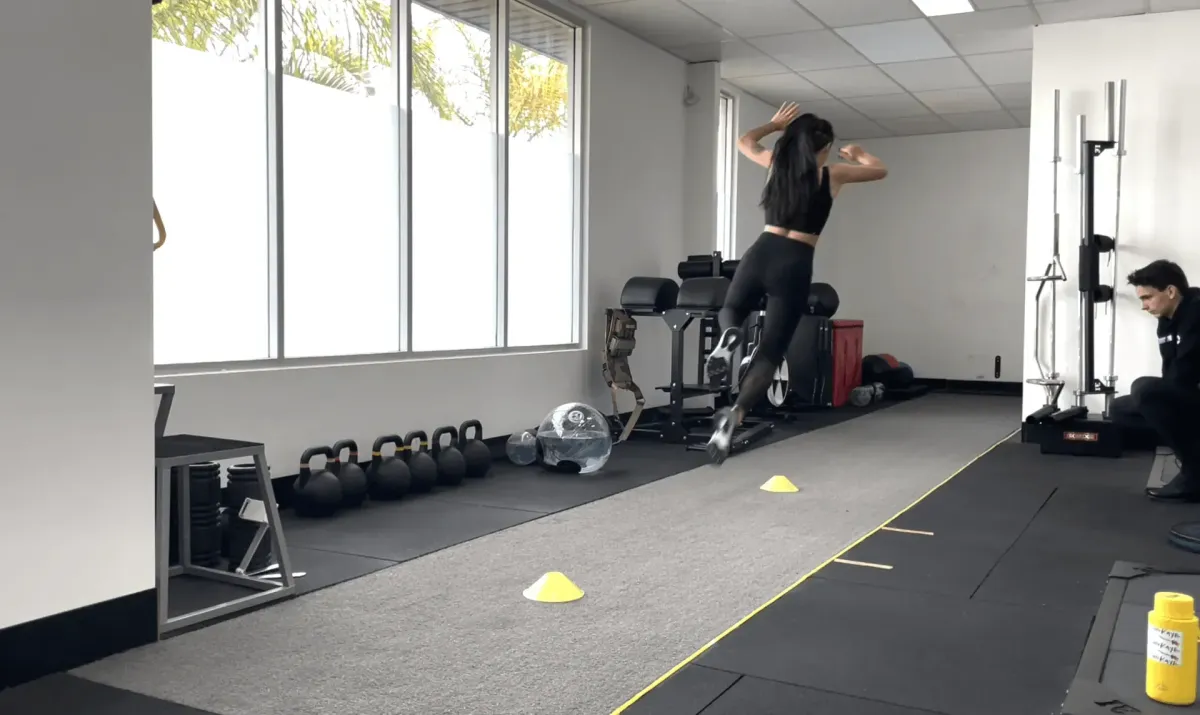Welcome To
Our Blog

PCL Injury Rehab for Athletes | Strength, Sprint & Stability Guide
🦵 PCL Injuries: What Field Athletes Need to Know About Recovery and Rehab
Not all knee injuries are ACL tears. One of the most under-recognised yet performance-limiting injuries in sport is a posterior cruciate ligament (PCL) injury.
At Pivot Sports Performance, we frequently see athletes with undiagnosed or under-rehabbed PCL injuries that affect sprinting, cutting, deceleration, and confidence. Whether you’ve been diagnosed with a strain or are dealing with lingering back-of-knee pain, this article will help you understand what’s really going on — and what to do next.
❓ What Is the PCL?
The posterior cruciate ligament (PCL) is a key stabiliser of the knee joint. It prevents the tibia (shin bone) from sliding backward under the femur (thigh bone), particularly during:
High-speed deceleration
Landing from a jump
Pivoting or changing direction
Walking downhill or descending stairs
Unlike ACL injuries, PCL injuries are often caused by:
Falling onto a bent knee
A direct blow to the front of the shin
Hyperextension injuries in sprinting or cutting
🔍 Common Symptoms of a PCL Injury
Many athletes mistake a PCL injury for general knee soreness or a quad weakness issue. The key signs include:
Pain or swelling in the back of the knee
Knee instability, especially going downhill
Reduced power with sprinting or jumping
Hesitation or weakness with deceleration drills
Trouble with stairs or directional changes
🚫 Why PCL Injuries Are Often Mismanaged
Because many PCL injuries don’t involve a complete rupture — and may not swell dramatically — they often go undiagnosed. Some athletes are told to rest and “wait it out,” which delays proper rehab and leads to:
Quad wasting and poor lower limb control
Movement compensation, affecting hips and ankles
Chronic knee instability and performance decline
🧠 What Proper PCL Rehab Looks Like
At Pivot, we follow a structured, evidence-informed process to get athletes back to full capacity. This includes:
✅ 1. Early Phase – Control and Activation
Reducing swelling and pain
Restoring full range of motion
Activating quadriceps and glutes to support knee alignment
Use of bracing (if required for Grade II/III injuries)
✅ 2. Strength and Load Progression
Unilateral loading: step-ups, split squats, RDLs
Hamstring, quad, glute and core integration
Building strength through full range of motion
✅ 3. Running, Sprinting and Cutting Reload
Controlled linear running → sprint mechanics
Deceleration, landing and cutting drills
Sprint and hop testing under fatigue
✅ 4. Return-to-Sport Clearance
Hop testing, strength benchmarks, movement screening
Field-specific or court-specific drill testing
Confidence under fatigue — not just pain-free movement
🏋️ Can You Avoid Surgery?
Yes — most isolated PCL injuries are managed without surgery, even in field and contact sports. In more complex cases (multi-ligament injuries or chronic instability), a surgical referral may be needed. But conservative management is effective in the majority of athletes — if done properly.
✅ Final Word
If you’ve been told your PCL is “not bad enough for surgery,” that doesn’t mean it should be ignored. An incomplete rehab process can lead to months of lost performance, reduced sprint power, and increased injury risk elsewhere.
At Pivot Sports Performance, we assess, treat, and progress PCL injuries using a performance-led rehab model. Whether you’re a footballer, netballer, rugby player, or sprinter — we’ll help you regain full knee control and get back to playing at your best.
01

Athlete Performance Program
High Performance Training Throughout Your Entire Season.
02

Sports Physio
Sport Specific Injury Management & Prevention
03

Concussion Clinic
Keeping Your Brain Safe With Up To Revolutionary Concussion Care
Website & Marketing Powered By Gymini


